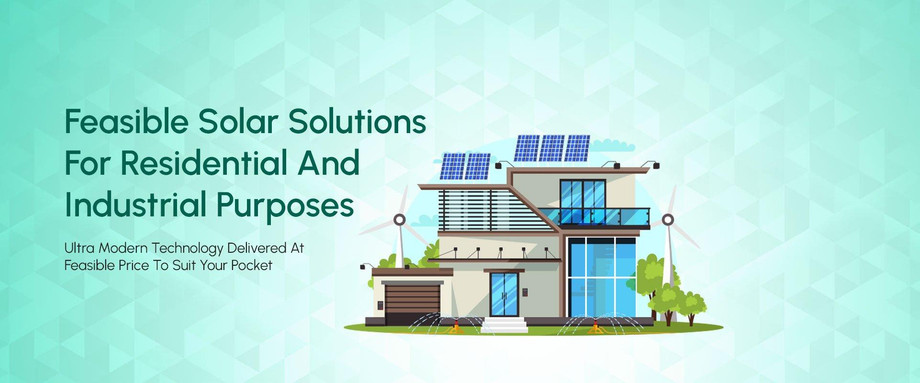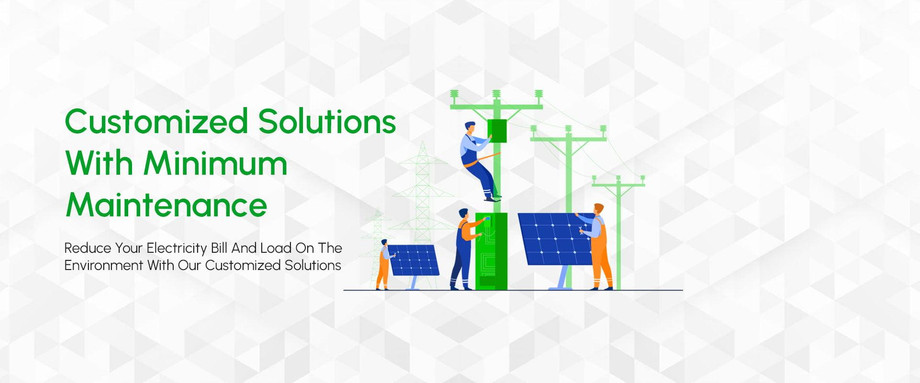Introduction to Solar Power Installation
In today's world, the push for renewable energy has never been more critical. Solar power stands at the forefront of this green revolution, providing a sustainable and efficient source of energy. A solar power installation company plays a crucial role in this transformation, offering expert services that make the transition to solar energy seamless and beneficial for both residential and commercial clients.
Understanding Solar Power: Benefits and Importance
Environmental Benefits
Harnessing solar energy significantly reduces carbon footprints. Unlike fossil fuels, solar power is clean and renewable, contributing to the reduction of greenhouse gases and combatting climate change. Installing solar panels reduces reliance on non-renewable energy sources, promoting a healthier planet.
Economic Advantages
Investing in solar power can lead to substantial economic benefits. Solar panels reduce or even eliminate electricity bills, leading to long-term savings. Additionally, many regions offer tax incentives and rebates for solar installations, further reducing the overall cost.
Energy Independence
With solar power, individuals and businesses can achieve greater energy independence. By generating your own electricity, you become less reliant on the grid and less vulnerable to energy price fluctuations. This stability is particularly beneficial in areas prone to power outages.
Steps Involved in Solar Power Installation
1. Initial Consultation and Site Assessment
The journey begins with an initial consultation, where the solar power installation company assesses the client's energy needs and site suitability. This involves analyzing roof space, orientation, and shading to determine the optimal setup for maximum efficiency.
2. Custom Design and Proposal
Following the site assessment, a custom solar power system is designed. This includes selecting the appropriate type and number of solar panels, inverters, and other components. The company then provides a detailed proposal, outlining the expected energy output, cost savings, and installation timeline.
3. Obtaining Permits and Approvals
Before installation can begin, necessary permits and approvals must be obtained from local authorities. The solar company handles this process, ensuring compliance with all regulations and codes. This step is crucial for a smooth and legal installation.
4. Installation Process
The actual installation involves mounting solar panels, wiring, and connecting the system to the electrical grid. Skilled technicians ensure that the installation is performed safely and efficiently, minimizing disruption to the client’s daily activities.
5. Inspection and Activation
After installation, the system undergoes a thorough inspection to verify its functionality and safety. Once approved, the system is activated, and the client begins generating their own solar power.
6. Monitoring and Maintenance
A reputable solar power installation company provides ongoing monitoring and maintenance services. This ensures the system operates at peak efficiency and any issues are promptly addressed. Regular maintenance can significantly extend the lifespan of the solar panels.
Choosing the Right Solar Power Installation Company
Experience and Expertise
Selecting a company with extensive experience and a proven track record is essential. Experienced installers are more likely to deliver high-quality results and effectively address any challenges that arise during the installation process.
Comprehensive Services
A full-service solar company offers a range of services, including consultation, design, installation, and maintenance. This end-to-end service ensures a cohesive and streamlined experience for the client.
Quality of Equipment
The quality of solar panels and other equipment is crucial for system performance and longevity. Top-tier solar companies use high-quality, durable components that offer excellent energy efficiency and resilience.
Customer Reviews and Testimonials
Reading customer reviews and testimonials can provide valuable insights into the company's reliability and service quality. Positive feedback from previous clients is a strong indicator of a company's commitment to customer satisfaction.
Financial Considerations and Incentives
Cost of Installation
The cost of a solar power system varies based on several factors, including system size, equipment quality, and installation complexity. A detailed financial analysis from the solar company helps clients understand the investment and expected returns.
Financing Options
Many solar companies offer financing options to make the transition to solar power more accessible. These may include loans, leases, or power purchase agreements (PPAs), allowing clients to choose the best option for their financial situation.
Tax Credits and Rebates
Various federal, state, and local incentives can significantly reduce the cost of solar installations. The Federal Investment Tax Credit (ITC) allows homeowners to deduct a substantial percentage of the installation cost from their federal taxes. Additionally, many states offer rebates and incentives to encourage solar adoption.
The Future of Solar Power
The solar industry continues to evolve, with advancements in technology and efficiency. Emerging trends include the integration of battery storage systems, enabling users to store excess energy for use during non-sunny periods or power outages. Furthermore, innovations in solar panel design are increasing energy capture and reducing costs.
Sustainability and Innovation
The commitment to sustainability drives continuous innovation in the solar industry. Research and development efforts focus on improving solar panel efficiency, reducing production costs, and creating more sustainable manufacturing processes.
Global Impact
As more countries commit to reducing carbon emissions and transitioning to renewable energy, the global demand for solar power is set to rise. This growth will drive further advancements and make solar power more accessible and affordable worldwide.
Conclusion
Choosing a solar power installation company is a significant step towards energy independence and environmental sustainability. By understanding the benefits, installation process, and financial incentives, clients can make informed decisions that provide long-term value. As the world moves towards greener energy solutions, solar power stands as a beacon of innovation and sustainability.



Comments
Post a Comment